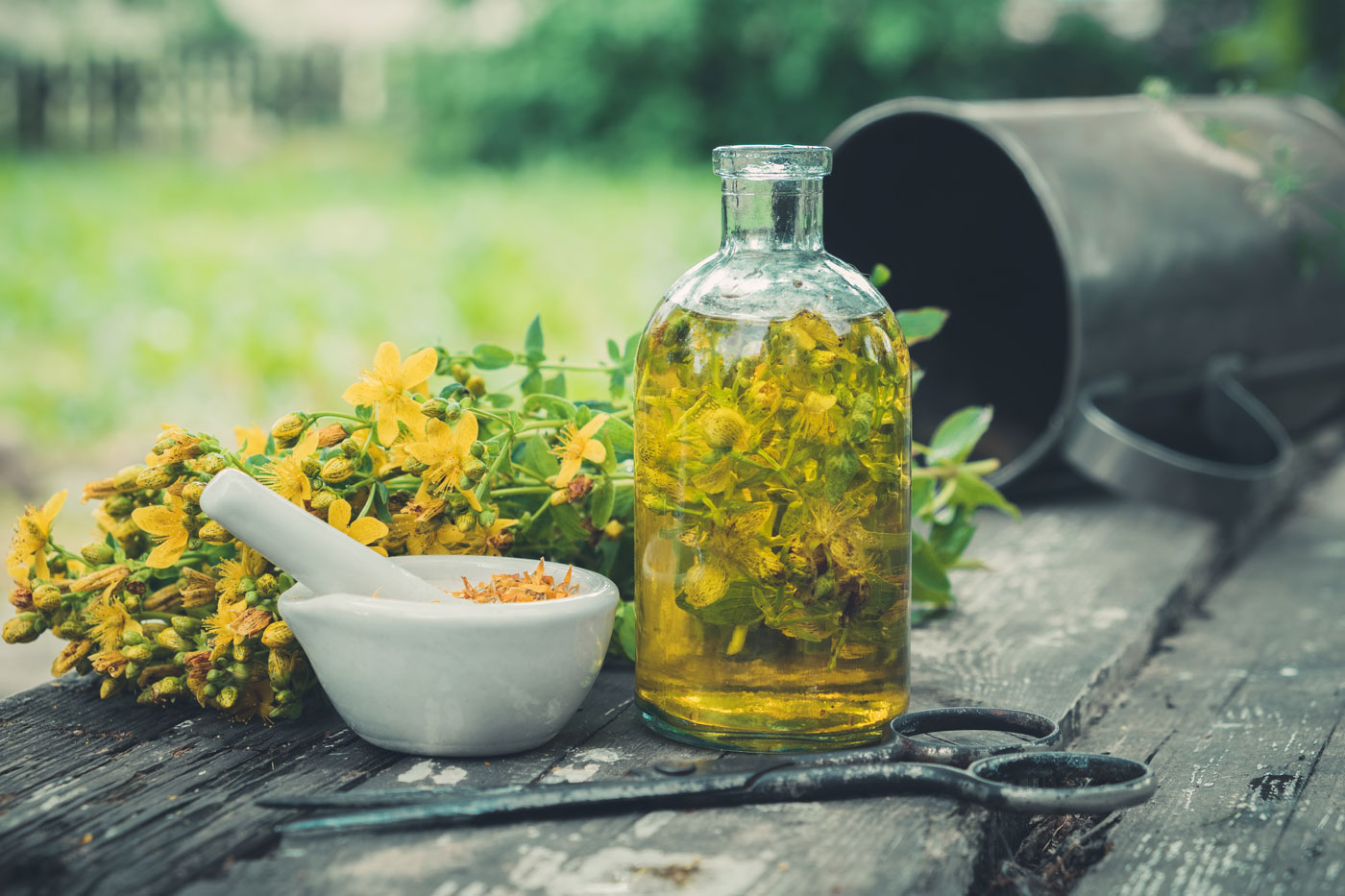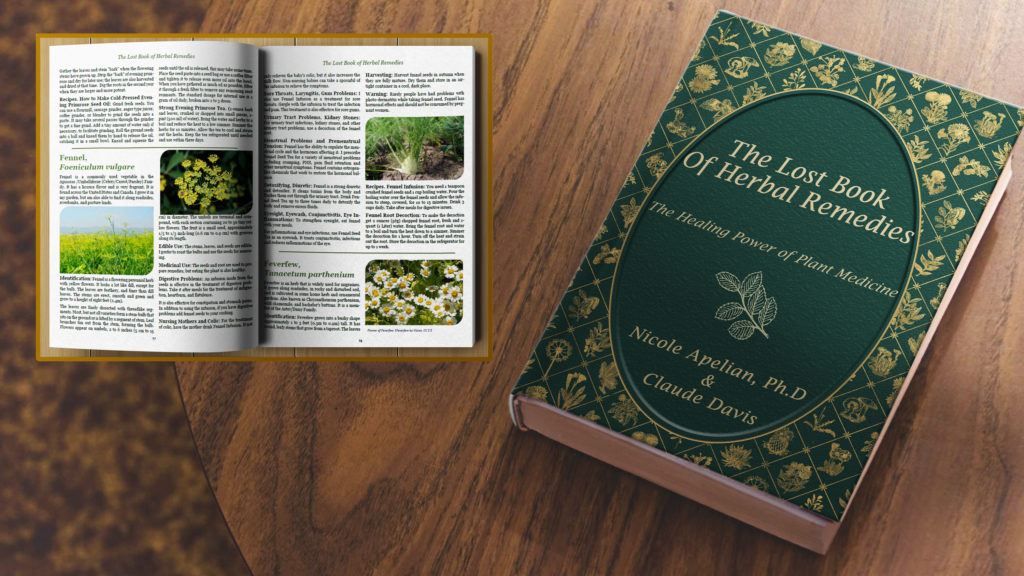Begin the New Year on a Bright Note with St. John’s Wort; My Top 3 Uses
Famously known for easing depression, anxiety, SAD, and OCD, St. John’s Wort is also an exceptional anti-inflammatory and antimicrobial. Additionally, this botanical helps to heal respiratory illness and is an effective herbal remedy against influenza. It calms the hormonal imbalances of menopause and PMS as well. The plant is easy to grow in a variety of conditions and produces beautiful clusters of yellow flowers.
Basic Identification: Also known as Klamath Weed, St. John’s Wort grows up to 3 feet (1 m) tall with erect stems. The stems branch outwards and have slim, yellowish-green leaves that are less than an inch (2.5 cm) across. The five-petaled flowers have pointed sepals with black dots. The large stamens are clustered into three groups. The flower buds release a red resin when squeezed.
Where Does It Grow? St. John’s Wort is hardy in zones 5-10 throughout the United States. It likes parched soil and bright, early morning sunlight with a little shade during the hottest part of the day.
Edible uses: The herb can be enjoyed as a delicious tea.
Medicinal Uses: Both the flowers and leaves can be taken as a tea, powder, tincture, or infused oil.
Here are my top 3 uses for St. John’s Wort:
Alleviates depression, anxiety, and OCD: St. John’s Wort is best-known for treating a range of mental health complaints, including: restlessness, insomnia, anxiety, and depression. It’s also quite effective for seasonal affective disorder (SAD) and OCD when paired with lemon balm. The herb generally does not cause adverse effects, although individuals with bipolar disorder should avoid using St. John’s Wort as it can increase the risk of mania. Those who use SSRI medication should also avoid using it. See additional warnings below.
Calms menopause and PMS symptoms: Soothing the symptoms of hormonal imbalances related to menopause, such as depression and fatigue, St. John’s Wort is also beneficial for easing a variety of PMS complaints, such as bloating, cramping, and irritability.
Clears chest colds, congestion, and respiratory illness: An excellent anti-inflammatory and anti-microbial agent, St. John’s Wort also helps to lessen chest congestion. Moreover, it speeds the recovery from infections, coughs, and colds. The herb is effective against influenza as well.
St. John’s Wort Tincture recipe: In a clean jar with a tight-fitting lid, loosely pack fresh St. John’s Wort flowers. Add 80 proof (40%) grain alcohol or vodka, covering the plant matter completely. Make sure to cap the jar tightly and label. Shake the jar each day and allow it to steep for 4 to 6 weeks. Add more alcohol as needed if evaporation takes place. When ready, strain the herbs out. Cap the jar and store it in a cool, dark location. Prolonged and regular use is often required for chronic conditions.
There are over 13 medicinal uses for St. John’s Wort in my book, The Lost Book of Herbal Remedies: The Healing Power of Plant Medicine. Detailed harvesting advice for this herb and many other easy-to-find plants are included. What’s more, it shows you how to make tinctures right in your own home. Nature does indeed provide!
Safety:
St. John’s Wort can interact with quite a few pharmaceuticals. Do not use if you are taking SSRI medication. It may also be contraindicated for Warfarin, Digitoxin, and HIV medications. The herb can cause sun sensitivity in those with fair skin. Avoid for two weeks before a scheduled surgery. Consult with your medical practitioner before use.
Nicole Apelian
Roll Up Your Sleeves and Do it Yourself?
Are you interested in making your own herbal remedies at home and learning about the many plants, lichens, and mushrooms you can find out your own back door? If so please pick up a copy of my book: "The Lost Book Of Herbal Remedies: The Healing Power of Plant Medicine" today!
Not in Europe or the US? Not a problem, click here to order your copy »





